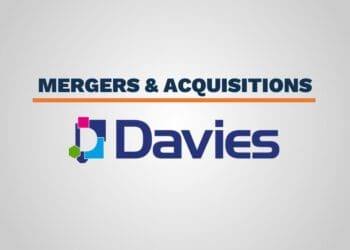The proposal to expand customer due diligence (CDD) compliance by the Financial Crimes Enforcement Network (FinCEN) will almost certainly become law in the near future. The proposed rule will expand customer due diligence obligations of banks, brokers or dealers in securities, mutual funds, futures commission merchants and introducing brokers in commodities. The proposed amendments will require that these entities know and verify the identities of the real people (also known as beneficial owners) who own, control and profit from the companies they service. 1
The new rules strengthen customer compliance due diligence and include four core elements:
- identifying and verifying the identity of customers,
- identifying and verifying the beneficial owners of legal entity customers,
- understanding the nature and purpose of customer relationships and
- conducting ongoing monitoring to maintain and update customer information and to identify and report suspicious transactions. 2
The covered financial institutions will have to identify and verify any individual who owns “25 percent or greater ownership interest, regardless of how many corporate parents or holding companies removed the natural person is from the legal entity customer.” Note that the term “the term ‘equity interests’ should be interpreted broadly.” In addition, at this point in time, the proposed rule will not apply to existing relationships, only new accounts. 3
Although the financial industry anticipated the proposed rule, however, the potential cost of implementing the changes and the possible risk of error are difficult to estimate. For example, ascertaining the beneficial owners maybe more complex and costly if multiple entities are intertwined and further exacerbated when foreign jurisdictions are considered.
As the Treasury and FinCen brings the U.S. more in line with its G8 commitment, the U.S. is committed to the following actions:
1. Risk Assessment: The United States is currently updating its national risk assessment, a public document assessing major money laundering conduits and methods, which will specifically address abuse of legal entities.
2. Advocate for Comprehensive Legislation: Continue to advocate for comprehensive legislation to require identification and verification of beneficial ownership information at the time a company is formed. One possible approach could include the following provisions:
- Definition of Beneficial Owners – Define beneficial owner as a natural person who, directly or indirectly, exercises substantial control over a covered legal entity or has a substantial economic interest in, or receives substantial economic benefit from, such legal entity, subject to several exceptions.
- Collection and Verification of Documentation – Include two options for covering legal entities depending on whether the applicant forms the legal entity directly or uses a regulated company formation agent. Both cases would require the collection and verification of the documentation associated with beneficial ownership.
- Regulation of Company Formation Agents – Extend Anti-Money Laundering obligations to company formation agents, including an obligation to identify and verify beneficial ownership information.
- Accessibility of Information – Ensure law enforcement authorities, including tax authorities, will be able to access beneficial ownership information upon appropriate request through a central registry at the state level. Although all states currently make some basic information available through public registries, states may choose to make beneficial ownership information publicly available.
- Transfers – Mandate that entities update information filed with a state or a formation agent within 60 days following any change of beneficial owners.
- Exemptions – Include, but not limit exemptions to, publicly traded companies in the U.S., federally regulated financial institutions and operating companies meeting certain employee or revenue requirements.
- Liabilities – Mandate civil and criminal penalties for knowingly providing false information or documentation to a state or formation agent.
3. Clarify and Strengthen Customer Due Diligence Standards for U.S. Financial Institutions: The United States is currently engaged in rule-making to develop an explicit customer due diligence obligation for U.S. financial institutions, including a general requirement to identify the beneficial owners of legal entity customers.
4. International Cooperation: Assess the effectiveness of existing means for complying with requests for mutual legal assistance and other forms of international cooperation related to beneficial ownership of companies.4
The bottom line: going forward, we can expect more proposed rule changes and updates from FinCen.
End Notes
1 Federal Register/ Vol. 79, No. 149 / Monday, August 4, 2014 / Proposed Rules. http://www.fincen.gov/statutes_regs/files/CDD-NPRM-Final.pdf
2 S. Department of the Treasury – Press Release (7/30/14). “New Rule Will Make Financial System More Transparent; Furthers U.S. G-8 commitments.” http://www.treasury.gov/press-center/press-releases/Pages/jl2595.aspx
3 Federal Register/ Vol. 79, No. 149 / Monday, August 4, 2014 / Proposed Rules. 1010.230 Beneficial Ownership Information Collection. http://www.fincen.gov/statutes_regs/files/CDD-NPRM-Final.pdf
4 The White House Office of the Press Secretary June 18, 2013. United States G-8 Action Plan for Transparency of Company Ownership and Control. http://www.whitehouse.gov/the-press-office/2013/06/18/united-states-g-8-action-plan-transparency-company-ownership-and-control














